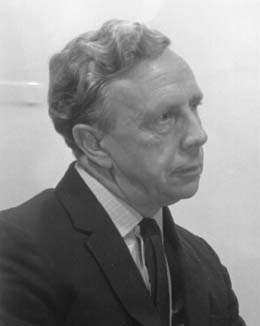John Crank facts for kids
Quick facts for kids
John Crank
|
|
|---|---|
 |
|
| Born | 6 February 1916 |
| Died | 3 October 2006 (aged 90) |
| Nationality | British |
| Alma mater | Manchester University |
| Known for | Crank–Nicolson method |
| Scientific career | |
| Fields | Mathematics |
| Institutions | Brunel University |
| Doctoral advisor | William Lawrence Bragg |
John Crank (born February 6, 1916 – died October 3, 2006) was a brilliant mathematical physicist. He was best known for his work on solving complex math problems using numbers. These problems often involved what are called partial differential equations.
Early Life and Education
John Crank was born in a town called Hindley in Lancashire, England. His father worked as a carpenter's pattern-maker. John was very good at math and went to Manchester University. He studied there from 1934 to 1938. During this time, he earned two degrees: a Bachelor of Science (BSc) and a Master of Science (MSc). Later, in 1953, Manchester University gave him an even higher degree, a Doctor of Science (DSc).
Career and Discoveries
During the Second World War, John Crank used his math skills to work on ballistics. This is the science of how things like bullets and rockets move through the air. After the war, from 1945 to 1957, he worked as a mathematical physicist at a research lab.
In 1957, John became the very first Head of the Mathematics Department at Brunel College in Acton. He also served as the vice-principal of Brunel for two terms. He retired in 1981 and was given the special title of "professor emeritus." This means he was still honored as a professor even after retiring.
John Crank's most important work was finding ways to solve partial differential equations using numbers. He was especially good at solving problems about how heat spreads. His most famous achievement was working with Phyllis Nicolson to create the Crank–Nicolson method. This method is a very important tool used by scientists and engineers today to solve many different kinds of math problems.
Personal Life
John Crank loved gardening. As a retirement gift, he helped create the John Crank Garden at Brunel University. He was married to his wife, Joan, for 63 years. Joan passed away in 2005. John and Joan had two children.
 | William L. Dawson |
 | W. E. B. Du Bois |
 | Harry Belafonte |

